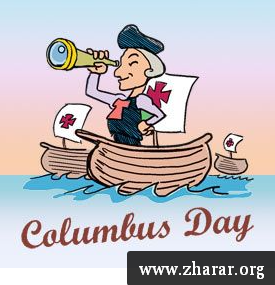Essays ✍️

History and Meaning
Columbus Day is a United States holiday that commemorates the arrival of the Italian explorer Christopher Columbus in the Americas on October 12, 1492. It was first celebrated in the late 18th century and became a federal holiday in 1937. For many Americans, Columbus Day represents exploration, courage, and the beginning of a new chapter in world history.
Christopher Columbus’s voyage was supported by King Ferdinand and Queen Isabella of Spain. His goal was to find a new route to Asia, but instead, he reached the islands of the Caribbean. Although he believed he had found Asia, his journey opened the way for contact between Europe and the Americas. This moment changed the world forever — it led to new trade, migration, and cultural exchange between continents.
However, not everyone views Columbus Day in the same way. Many people, especially Native Americans, see it as the beginning of colonization and suffering for Indigenous peoples. They argue that Columbus’s arrival brought disease, slavery, and the destruction of native cultures. For this reason, several states and cities now celebrate Indigenous Peoples’ Day instead. This day honors the original inhabitants of the Americas and their rich history.
Today, Columbus Day is more than just a holiday — it is a time for reflection. It encourages us to study history from multiple perspectives. While we can recognize Columbus’s courage and impact on world history, we must also acknowledge the harm caused by colonization. By understanding both sides, we can learn valuable lessons about respect, justice, and truth.
In the end, Columbus Day reminds us that exploration should always be guided by curiosity, but also by humanity and compassion.
Share on social networks:
Facebook | VK | WhatsApp | Telegram | Twitter
